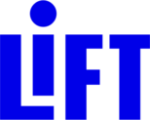by Jazmin Perez Garibald, Program Manager, Training, LIFT-Los Angeles
The National Financial Educators Council conducted a single-question survey across the country asking, “During the past year about how much money do you think you lost because you lacked knowledge about personal finances?” A total of 1,540 people responded to the survey between December 4th and December 17th. The survey found that the estimated average amount of money financial illiteracy cost Americans was $1,506 in 2023.
Every year Financial Literacy Month is celebrated in April and is not only a chance to celebrate but a chance to challenge ourselves to review our finances and gradually improve them. At LIFT, April gives us the perfect opportunity to intentionally bring financial wellness awareness to our parents to foster healthy financial habits that set families on the path towards economic mobility.
Financial literacy is the kind of knowledge affluent families tend to pass on to their kids, giving them a leg up when navigating personal finances in adulthood, widening the racial wealth gap between those stuck in the cycle of poverty and those with accumulated wealth. Financial literacy programs that build skills such as personal financial management, budgeting, and investing, are not a magic bullet in addressing poverty, but putting parents in the driver’s seat in setting and achieving their own goals is an important step in empowering them in the fight against systematic, intergenerational poverty. Parents know what’s best for their families, and LIFT trusts them to make decisions for their success.
Financial literacy has six components: earning, spending, saving, investing, borrowing, and protecting. Knowing how these components work together gives families more freedom and trust in themselves and others.
Earn: Developing skills, pursuing education, and securing employment that generates a steady income. Increasing earning potential opens doors to financial stability and growth. Tapping into one’s personal skills and monetizing talents such as crafting, coding, tutoring or consulting to earn income can also create avenues for financial gain.
Spend: Spending habits play a significant role in the financial journey. Being mindful and purposeful about spending can lead to greater financial freedom.
Saving: A well-structured savings plan involves setting aside a portion of your income regularly, creating an emergency fund, and working towards both short-term and long-term objectives. By adopting a disciplined savings strategy, individuals can prepare for unexpected expenses and work towards achieving their dreams.
Investing: There’s a common myth that investing is only for the super wealthy and out of reach for most people, but investing is something everyone should begin as early as possible and doesn’t require lots of money. Investing and saving for the future are two of the most crucial components of financial literacy as they help build wealth, reach financial goals, and secure a comfortable retirement.
Borrowing: Borrowing wisely allows major purchases while building credit. This can help pay for a home, car or a college education. However, avoid excessive debt that can eat into the ability to save and invest in the future.
Protecting: Protecting finances means safeguarding against potential risks and losses by purchasing insurance products to mitigate financial risks associated with illness, accidents, or property damage. It also involves taking measures to protect identity and personal information from theft or fraud.
Understanding and mastering this web alone can increase a family’s self-sufficiency and independence, but adding in an understanding of how to borrow, invest, and save wisely can empower generations to come. So many families are caught in high-interest loans, low-interest savings accounts, and are tricked into investing in bad places because they are financially illiterate and trust institutions to have their best interests in mind (which sadly, many don’t).
Financial literacy, coupled with opportunities like a guaranteed income, leads to financial empowerment. Which is why it is so important to continue increasing your knowledge this month and every month.
As we close out this Financial Literacy Month, we urge everyone to fine tune their financial knowledge, celebrate their success, and challenge themselves to review and improve their finances!
